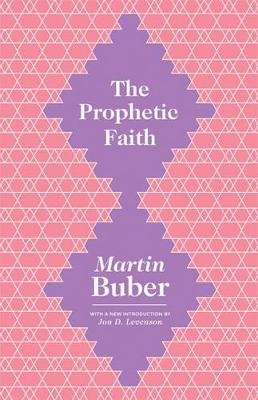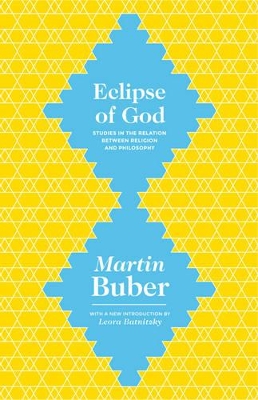Torchbooks
3 total works
In this book Buber completed his lifework of recreating and interpreting Hasidism. Here he makes explicit the place of Hasidism among world religions, contrasting it with biblical prophecy, Spinoza, Freud, Sankara, Meister Eckhart, Gnosticism, Christianity, Zionism, and Zen Buddhism.
Originally published in English in 1949, The Prophetic Faith features Martin Buber's readings of select biblical prophets--especially Isaiah and Deborah, the only female prophet and judge in the Hebrew Bible. In an approach that combines insights from biblical prophecy with a concern for events in the here and now, Buber outlines his interpretation of biblical revelation. Infused with an anti-institutional--some have said anarchic--sensibility, Buber discusses the notion of kingship as portrayed in the Bible and provides an account of human suffering in an extended discussion of the Book of Job. Anticipating those today who describe themselves as "spiritual but not religious," Buber gives pride of place to a personal God outside of formal religious and legal strictures. Featuring a new introduction by Jon D. Levenson, The Prophetic Faith encourages a renewed appreciation for the Hebrew Bible and its relevance to the practical challenges of the present day.
Biblical in origin, the expression "eclipse of God" refers to the Jewish concept of hester panim, the act of God concealing his face as a way of punishing his disobedient subjects. Though this idea is deeply troubling for many people, in this book Martin Buber uses the expression hopefully--for a hiding God is also a God who can be found. First published in 1952, Eclipse of God is a collection of nine essays concerning the relationship between religion and philosophy. The book features Buber's critique of the thematically interconnected--yet diverse--perspectives of Soren Kierkegaard, Hermann Cohen, C.G. Jung, Martin Heidegger, and other prominent modern thinkers. Buber deconstructs their philosophical conceptions of God and explains why religion needs philosophy to interpret what is authentic in spiritual encounters. He elucidates the religious implications of the I-Thou, or dialogical relationship, and explains how the exclusive focus on scientific knowledge in the modern world blocks the possibility of a personal relationship with God.
Featuring a new introduction by Leora Batnitzky, Eclipse of God offers a glimpse into the mind of one of the modern world's greatest Jewish thinkers.
Featuring a new introduction by Leora Batnitzky, Eclipse of God offers a glimpse into the mind of one of the modern world's greatest Jewish thinkers.


